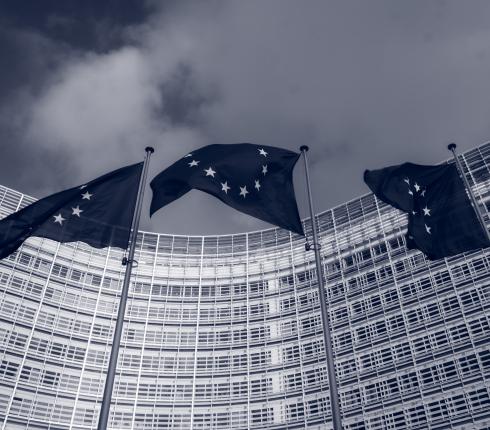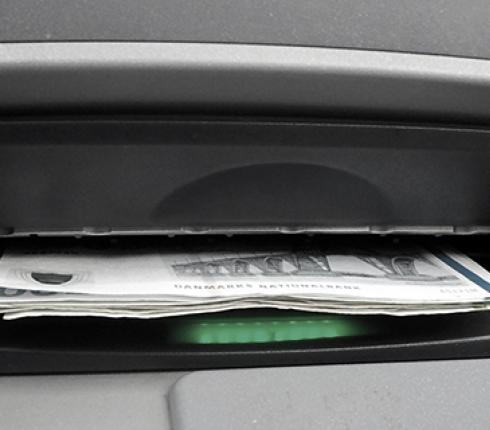Updated guidelines on the cross-border distribution of investment funds
ESMA has recently published guidelines on the cross-border regime in relation to marketing material under the Regulation on the cross-border distribution of funds.

Cross-border rules
On 20 June 2019, the EU Commission adopted Regulation (EU) 2019/1156 of 20 June 2019 on facilitating cross-border distribution of collective investment undertakings (the “Cross-border Regulation”) and Directive (EU) 2019/1160 of 20 June 2019 on amendment of Directives 2009/65 / EC and 2011/61 / EU as regards the cross-border distribution of UCITS (the "Cross-Border Directive"). You can read our news about this here.
The rules contain, among other things, the following: a definition of rights and obligations relating to pre-marketing and requirements for marketing material aimed at potential investors.
Overall, the new rules provide more clarity and uniformity in the cross-border marketing of collective investment undertakings in the European Union and define to a greater extent the documents and activities covered by the concept of "marketing material".
On 2 August 2021, ESMA published guidelines on the new regime in the national languages of the Member States, making it easier for distributors to adapt. The guidelines will enter into force on 2 February 2022.
MARKETING MATERIALS
The rules on marketing materials apply to, among others, AIFMs, EuVECA managers, EuSEF managers and UCITS management companies and set requirements for the content, methodology, and form of the marketing material.
As examples of documents that can be considered marketing material, the guidelines provide the following examples:
a) All messages advertising for a UCITS or an AIF, regardless of the medium, including paper printed documents or information made available in electronic format, press articles, press releases, interviews, advertisements, documents made available on the internet, as well as webpages, video presentations, live presentations, radio messages or factsheets.
b) Messages broadcasted on any social media platform, when such messages refer to any characteristics of a UCITS or an AIF, including the name of the UCITS or the AIF. The term “social media” is to be understood as any technologies which enable social interaction and the creation of collaborative content online, such as blogs and social networks (Twitter, LinkedIn, Facebook, Instagram, Tiktok, Youtube, Discord etc.) or discussion forums, accessible by any means (in particular electronic means, via a computer or mobile applications for example).
c) Marketing material addressed individually to investors or potential investors, as well as documents or presentations made available by a UCITS management company, an AIFM, a EuVECA manager or a EuSEF manager to the public on its website or in any other places (fund manager’s registered office, distributor’s office, etc.).
d) Marketing material aimed individually at investors or potential investors, as well as documents or presentations made available to the public by an investment management company, a AIFM, a trustee of EuVECA's or a trustee of EuSEF's on their respective websites or elsewhere (the registered office of the fund manager, the registered office of the distributor, etc.).
e) Communications advertising a UCITS or an AIF addressed to investors or potential investors located both in the home Member State of the fund manager or in a host Member State.
f) Communications by a third party and used by a UCITS management company, an AIFM, a EuVECA manager, or a EuSEF manager for marketing purposes.
Examples of documents that are not considered marketing material are as follows:
a) Legal and regulatory documents/information of a fund, such as the prospectus or the information which is to be disclosed to investors in accordance with Article 23 of Directive 2011/61/EU, Article 13 of Regulation (EU) No 345/2013 or Article 14 of Regulation (EU) No 346/2013, the KIID and/or KID, the annual and half-yearly reports of a UCITS or an AIF, the Memorandum & Articles of Association, By-Laws, Trust Deed or similar documents required to legally establish a fund, or notice to a General Meeting of shareholders/unitholders.
b) Corporate communications broadcast by the fund manager describing its activities or some recent market developments – such as the disclosure of quarterly or half-yearly earnings, dividend announcements, organisational announcements or senior management changes – which do not refer to a specific UCITS or AIF or a group of UCITS or AIFs, unless the activities of the fund managers are limited to one fund or a small number of funds which are implicitly identified in such corporate communication.
c) Short messages broadcast online, in particular on social media platforms (e.g. Twitter, LinkedIn, Facebook, Instagram, Tiktok, Youtube, Discord etc), which only include a link to a webpage where a marketing communication is available, but which do not contain any information on a specific AIF, UCITS or group of AIFs or UCITS.
d) Information or communication issued in the context of pre-marketing, as defined in Article 4(1)(aea) of Directive 2011/61/EU (pre-marketing).
Although the Guidelines will not enter into force until the beginning of the new year, market participants should already be considering the proper implementation of the content of the Guidelines, including the need to change existing marketing practices as well as the prepared marketing material.
pre-marketing
For the first time, the Cross-Border Directive introduces conforming rules on pre-marketing and makes direct amendments to the AIFM Directive, where a definition of "pre-marketing" has been added. Also, a new provision has been added to the AIFM Directive, which sets out the modalities for the pre-marketing of EUAIFMs in the EU.
The two provisions of the Cross-Border Directive are implemented in the Danish Act on Alternative Investment Fund Managers, etc.
The definition of pre-marketing is now set out in the Danish AIFM Act and, despite linguistic/structural difficulties, it is materially identical to the definition of the Directive. The provision states that pre-marketing includes the provision of information or communications, directly or indirectly, on investment strategies or ideas from an EU AIFM to potential professional investors in the EU in order to test investors' interest in an AIF or its branch, which has not yet been established, or AIF/sub-fund which are established but have not yet submitted a marketing notification in the Member State concerned, where the potential investors reside or have their registered office and which, in each case, do not constitute the same as an offer or placement with the investor for the purpose of investing in the AIF/sub-fund concerned.
The requirementsfor pre-marketing in the EU are set out in a new provision of the AIFM Act, which initially stipulates that only AIFMs authorised are permitted to pre-market AIFs to professional investors. Thus, pre-marketing is not permitted to retail investors or semi-professional investors. An AIFM may not pre-market if the information provided to potential professional investors 1) is sufficient to enable investors to commit to acquiring shares in a particular AIF; 2) constitute the same as subscription forms or similar documents in draft or in final form; or 3) constitute the same as founding documents, a prospectus or the like in the final form of an AIF which has not yet been established.
In addition, submitted drafts of a prospectus or tender document shall not contain sufficient information to form the basis for an investment decision for investors. It must be clear from the draft prospectus or the like that 1) they do not constitute an offer or invitation to subscribe for shares or shares in an AIF, and 2) information in the draft cannot be relied on as it is incomplete and may be amended.
These requirements mean that AIFMs wishing to pre-market must pay particular attention to having sufficient disclaimers in their marketing documents or tender documents. Also, special measures should be introduced to avoid the distribution of pre-marketing material to retail or semi-professional investors.
THE IMPORTANCE OF THE NEW RULES ON PRE-MARKETING AT THE NATIONAL LEVEL AND REGISTERED AIFMS
The Danish Financial Supervisory Authority's ”Q&A”* continues to indicate that meetings with potential investors before the AIF is created and before the existence of a Private Placement Memorandum (PPM), prospectus or similar, will not be considered marketing. This starting point must, after the entry into force of the new rules, no longer be assumed to apply without reservation. However, it seems unclear whether the new rules on pre-marketing affects the possibilities of national pre-marketing aimed at, for example, registered managers of Danish AIF's potential investors (semi- and professional investors). In view of the definition of pre-marketing in the Danish AIFM Act, as explained above, it seems access to this is excluded. The Danish FSA has yet to publish guidance, which could give the registered AIFMs a better understanding of the legal situation. Because of this and considering the regulatory uncertainty, registered managers should refrain from pre-marketing AIFs aimed at Danish investors.
*Last updated in February 2020


























